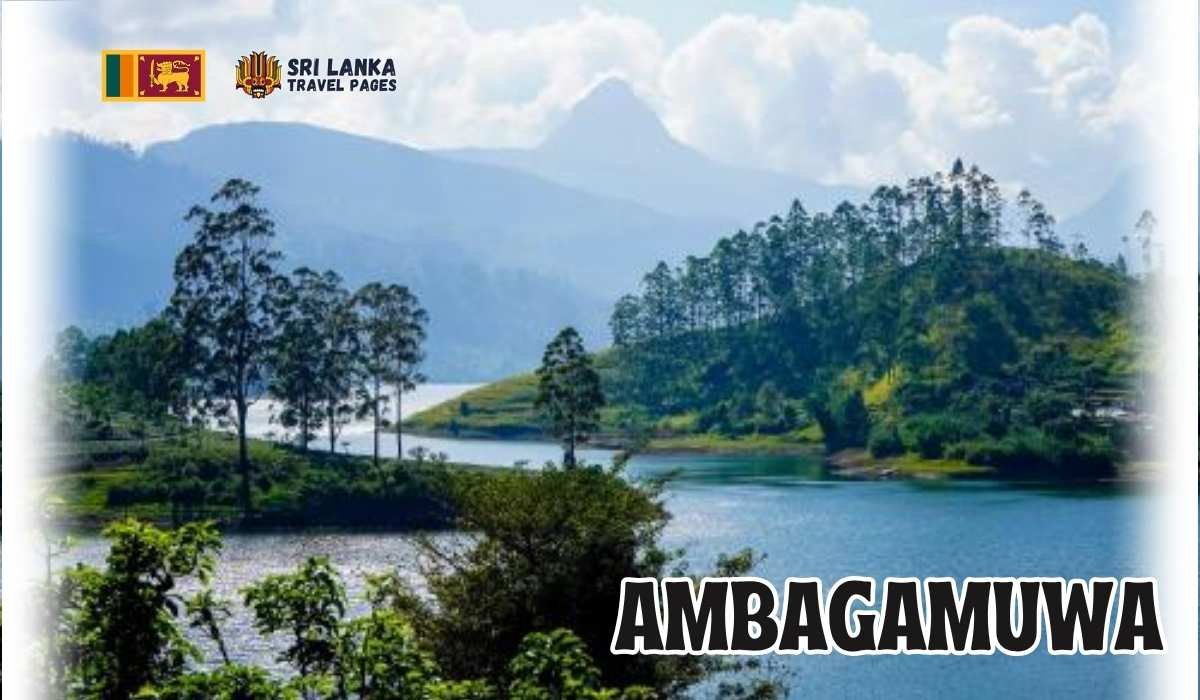
Амбагамува — живописный город в Центральной провинции Шри-Ланки, известный своими пышными чайными плантациями, каскадными водопадами и прохладным горным климатом. Расположенный на пути между Нувара-Элией и Хаттоном, он предлагает потрясающие виды на зеленые долины и лесистые холмы. В этом районе проживают представители самых разных национальностей, включая сингалов, тамилов и мусульман, чьи культурные традиции обогащают социальную структуру региона. Благодаря безмятежным пейзажам, религиозной гармонии и близости к таким достопримечательностям, как водохранилище Каслри и водопад Сент-Клер, Амбагамува — это тихое место для любителей природы и культурного наследия.
Общая численность населения
219,600
Подразделения ГН
32
Где шепчут водопады и объединяются культуры
Амбагамува – высокогорный город разнообразия и очарования
Расположен в районе Нувара Элия центральной провинции Шри-Ланки. Амбагамува — тихий город, известный своими потрясающими пейзажами, многокультурным сообществом и прохладным климатом. Ожидаемое население к 2025 году составит около 78 000, он расположен между Хаттоном и Навалапитией, предлагая идеальное сочетание природы и местной жизни.
Чайные долины и живописные чудеса
Амбагамува — обширный город чайные плантации, лесистые холмы и очаровательные водопады, такие как Сент-Клер а также Девон ФолсЭти живописные сокровища делают его раем для экотуристов, любителей походов и путешественников, ищущих более прохладный климат и живописные виды гор.
Фермерство, поместья и повседневные средства к существованию
Сельское хозяйство, особенно выращивание чая, является движущей силой местной экономики. Работники поместий, мелкие фермеры и местные торговцы вносят свой вклад в динамичную сельскую экономику, основанную на традициях и упорном труде.
Гармония в разнообразии
Амбагамува — город с богатой культурой, где соседствуют сингальская, тамильская и мусульманская общины. Религиозные достопримечательности, такие как буддийские храмы, индуистские ковилы, а также мечети отражают инклюзивный и уважительный дух региона.
Образование и местная инфраструктура
В этом районе есть несколько школ, медицинских учреждений и программ развития общества, которые поддерживают образование, благополучие и социальное равенство среди различных слоев населения.
Доступ и путешествия
- 🚆 На поезде: До отеля легко добраться через близлежащие станции железнодорожной линии Коломбо–Бадулла, включая Хаттон и Навалапитию.
- 🚗 По дороге: Хорошо развита дорожная сеть, соединяющая Гинигатхену, Маскелию и Нувара-Элию.
Недооцененная жемчужина в холмистой местности
Благодаря своей природной красоте, культурной глубине и гостеприимной атмосфере, Амбагамува — скрытое сокровище центрального нагорья Шри-Ланки — идеальный вариант для тех, кто ищет спокойствие, разнообразие и подлинное сельское очарование.
| GN-код | Имя на английском языке |
|---|---|
| 005 | Калугала |
| 010 | Питтавала |
| 015 | Булатгама |
| 020 | Гонавала |
| 025 | Северная Амбагамува |
| 030 | Селлипигама |
| 035 | Восточная Амбагамува |
| 040 | Амбагамува Юг |
| 045 | Рампадения |
| 050 | Миллагахамулла |
| 055 | Дхагампития |
| 060 | Полпития |
| 065 | Минувандения |
| 070 | Хитегегама |
| 075 | Кехелварава |
| 080 | Хомагама |
| 085 | Хеббеканда |
| 090 | Самансиригама |
| 095 | Тениягала |
| 100 | Гинигатена |
| 105 | Дехигастенна |
| 110 | Калавелдения |
| 115 | Морахенагама |
| 120 | Хангарапития |
| 125 | Джамбутхенна |
| 130 | Котеллена |
| 135 | Ваггама |
| 140 | Лаксапана |
| 145 | Кириванелия |
| 150 | Видхулипура Юг |
| 155 | Север Видулипура |
| 160 | Ватавала |
